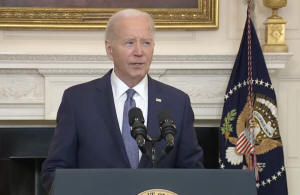|
The administration recently announced a variety of new tariffs
on Chinese imports such as steel and aluminum, semiconductors,
batteries and medical equipment. U.S. Treasury Secretary Janet
Yellen told a news briefing that President Joe Biden's new
tariffs are aimed at protecting American-made electric vehicles,
solar energy products and semiconductors from so-called excess
Chinese capacity.
China immediately vowed retaliation. Its commerce ministry said
Beijing was opposed to the tariff hikes and would take measures
to defend its interests.
“Even though the administration said the tariffs are for China,
in the end these 25% tariffs are being paid by the importers who
import the products and the cost is just passed down to the
consumers,” said Robert Um, National Operations Performance
manager with Customs Brokerage at OEC Group in Chicago.
Other products have risen in price because of tariffs. In a
letter sent to Biden in May, major shoe brands, including Nike
and Adidas, urged the Biden administration to lift the tariff’s
put in place by then President Donald Trump.
Critics have said the EV-related tariffs could slow Biden’s
green energy agenda. The Environmental Protection Agency issued
tailpipe pollution standards in April designed to drive the
share of electric vehicles up from 8% last year to as much as
56% by 2032. Without access to lower-cost batteries and other
materials made in China, EVs will be too expensive for
mainstream U.S. consumers, automakers have said.
“This policy will increase costs for consumers, dramatically
strain the U.S. electric grid, contribute to more traffic and
congestion on roads, undermine our energy independence, and
impact every sector of the U.S. economy,” said Rich Moskowitz,
general counsel for American Fuel and Petrochemical
Manufacturers.
The Illinois Corn Growers Association has joined a coalition of
agricultural and oil industry representatives to sue the EPA for
what they said is its inequitable and costly electrification of
America’s vehicle fleet.

|
|





